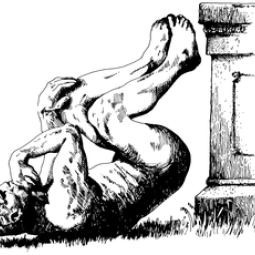Ig Nobel Prize: first laugh, then think

The lecture is taught in English/Foredraget afholdes på letforståeligt engelsk.
We are again able to invite the alternative Nobel Prize – the Ig Nobel Prize – to Aarhus University. Meet some researchers who have received the Ig Nobel Prize and the founder of the prize – mathematician Marc Abrahams.
It is hard to describe the Ig Nobel Prize and not least lectures of the prize winners – it needs to be experienced. Here is a try though:
The award ceremony: Orchestrated by Marc Abrahams the ten Ig Nobel Prizes were awarded for the 25rd time in a blaze of publicity at a great gala ceremony at Harvard University, USA on September 17, 2015.
The prize brings into focus ten research results of the year that are exceptionally creative, unlikely and bizarre, though still serious. To put it in another way: The prize goes to “peculiar research” that in the first place makes us laugh and then afterwards gives us food for thought.
The prize covers a wide range of sciences yet with main emphasis on natural science, medicine and social science. In general the prizes are given to respected serious research which has been published in peer-reviewed scientific journals.
- The evening will begin with a short lecture from the founder of the prize Marc Abrahams who, with a twinkle in the eye, will tell about the prize, the ceremony at Harvard University and some of the latest years prize winners and their research “which neither can or should be repeated”. After this, the Ig Nobel Prize winners below will explain and perhaps demonstrate their prize-winning achievements:
- Mag. Dr. Elisabeth Oberzaucher, Department of Anthropology, University of Vienna, Austria – fortrying to use mathematical techniques to determine whether and how Moulay Ismael the Bloodthirsty, the Sharifian Emperor of Morocco, managed, during the years from 1697 through 1727, to father 888 children.
(Ig Nobel Prize in Mathematics, 2015) - Mark Dingemanse, Max Planck Institute for Psycholinguistics, The Netherlands – for discovering that the word "huh?" (or its equivalent) seems to exist in every human language — and for not being quite sure why.
(Ig Nobel Prize in Litterature, 2015) - Michael L. Smith Cornell University, USA – for carefully arranging for honey bees to sting him repeatedly on 25 different locations on his body, to learn which locations are the least painful (the skull, middle toe tip, and upper arm). and which are the most painful (the nostril, upper lip, and penis shaft).
(Ig Nobel Prize in Physiology and Entomology, 2015)
Warning: The lectures are not suitable for the humourless. :-)
*OBS!
I skal være opmærksomme på, at jeres reserverede pladser bortfalder kl. 18.45. Det er derfor vigtigt, at I ankommer før dette tidspunkt, selvom foredraget først starter kl. 19.00.
Seminaret afholdes i samarbejde med Offentlige foredrag i Naturvidenskab, Aarhus.
-
Antal deltagere65
-
TypeValgfri




 Find us on Facebook
Find us on Facebook
 Join our network
Join our network